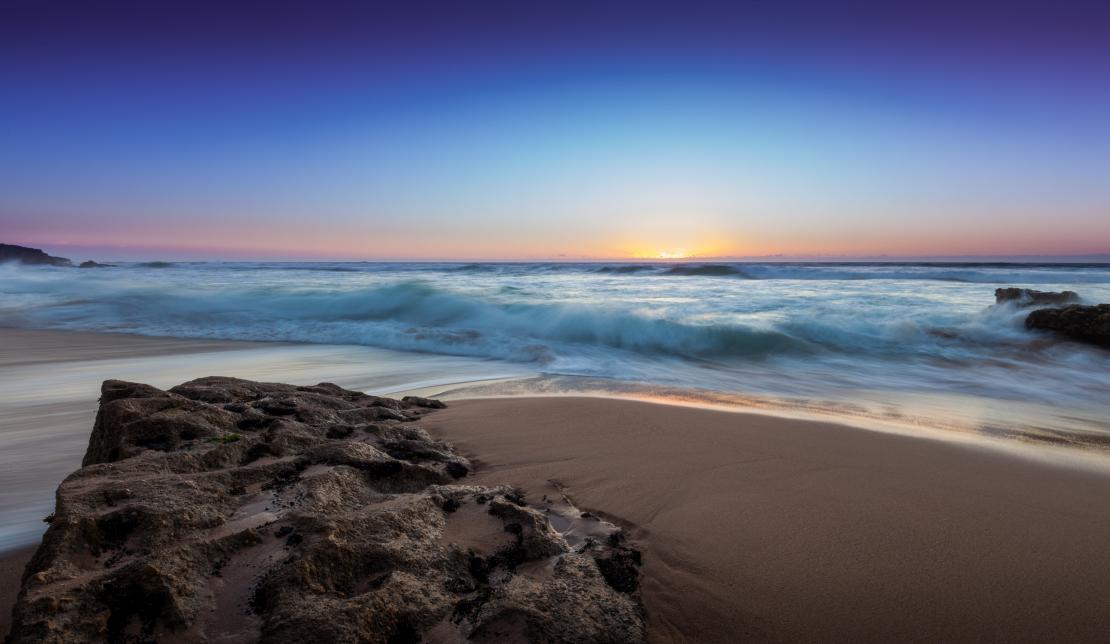
A healthy ocean is key for a sustainable future both for people and the planet; about 40 per cent of the world’s population lives at or near a coast, and a large proportion of those people depends on the sea for a living. The world’s coastal populations contribute significantly to the global economy – an estimated $1.5 trillion per year – with expectations pointing to around $3 trillion by 2030.
Harnessing the resources of our oceans and coasts can be an easy solution to meet the actual demand, and it is imperative that we do this in a sustainable manner. Ensuring ocean ecosystem health, supporting livelihoods, and driving economic growth requires targeted strategies and support for key sectors, including fishing and aquaculture, tourism, shipping and port activities, deep sea mining, as well as innovative areas such as renewable energy and marine biotechnology.
Despite of the lack of a universally accepted definition of the term blue economy, the World Bank defines it as “the sustainable use of ocean resources for economic growth, improved livelihoods, and jobs while preserving the health of the ocean ecosystem. A blue economy prioritizes all three pillars of sustainability: environmental, economic, and social (Planet, Profit and People).
The UN has set ten targets to be achieved between 2020 and 2030 under Sustainable Development Goal 14, on the protection of marine life, such as preventing and reducing pollution and acidification, protecting ecosystems, regulating fisheries, and increasing the scientific knowledge. The United Nations saw the Lisbon Oceans’ conference as an opportunity for a call to action to reverse the decline in ocean health, with 157 countries participating, over 900 corporations and 4000 businesspeople. The end result led to the adoption by all of the participant countries of the Lisbon declaration entitled “Our Ocean, Our Future, Our Responsibility”, which brings together a set of measures of what can be done to save the oceans.
Several national initiatives have been announced, such as The United States announcing that it has joined the International Alliance to Combat Ocean Acidification, and Australia declared that it will invest €1.1 billion in preserving the Great Barrier Reef. Portugal wants to meet the goal of protecting 30% of marine areas by 2030 and the Community of Portuguese Speaking Countries (CPLP) created a cooperation platform to combat illegal fishing.
Portugal’s new Minister for the Economy and the Sea has very specific plans to develop the country’s blue economy. It has set up the “Sea Task Force”, composed by 8 working groups, including the Marine Force, universities, foundations, private corporations, and scientists. These 8 groups will be focused on:
- developing the greenshipping concept the Sine’s port and developing the digital transformation and global international connection of Portuguese ports
- look for sustainable supporting financial solutions for the marine projects
- developing the oceanic and the renewal energies
- support the marine biotechnology, including new food solutions like algae.
The idea is to fuel the national economy based on these new opportunities, including the levels of employment in the sea sector, representing around 4% of the employment we have in the country today.
It is a huge development opportunity to a small country as ours. If we look at our Exclusive Economic Zone and if the extension of the Continental Shelf is granted as it exists in the request made to the United Nations, we will have about 4 million square kilometres of territory under the jurisdiction of the Portuguese government. And more than 90% of that territory is sea, that is, the Exclusive Economic Zone is 40 times the continental part.
Portugal has a long and rich history linked to the sea. We were once an extremely wealthy nation due to all the business developed from the maritime routs. We have now different tools to leverage on; there are around 4 billion euros in the Government’s Mobilizing Agendas to the sea components and 252 million euros in the PRR!
What we need is well defined strategic plans, very concrete actions and key stakeholders, and the dynamics and commitment needed to make it happen.
The is a Sea of sustainable business opportunities surrounding us.
Let’s cease them!
Marta Lima
Executive in Residence @ CATÓLICA-LISBON
Executive Director of the Portuguese Water Management Pact
This article refers to edition #145 of the "Have a Great and Impactful Week" Newsletter and covers SDG 14.
Subscribe here to receive the weekly newsletter